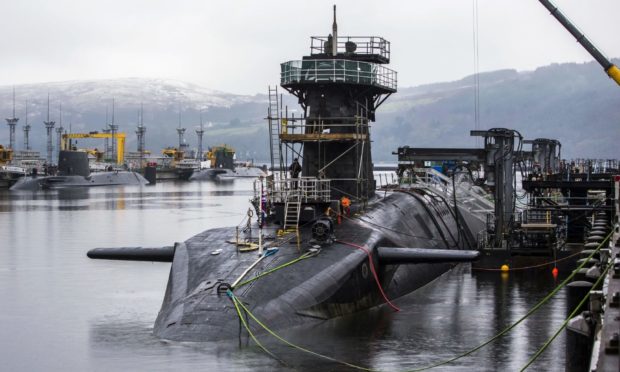I don’t understand money. I am not talking about my own earnings. I am reasonably well aware of where what I bring home disappears to. I know the number of bills of all sorts that have to be paid – including the food that needs to go on the table. And boy, do I know how fortunate I am to be able to meet those various bills.
It might not be possible for me to do and to have everything I might want but, within certain limitations, I really don’t do too badly at all.
I write this conscious that the story is not the same for everyone. Even in 21st-Century Scotland.
There are too many, especially in these Covid days, who are struggling to cover the basics – to pay the rent and heat their home and also to have food in their cupboards. There are record numbers of people turning to family and friends for help and, even more worryingly, to unscrupulous lenders whose charges can dig the debt hole so deep, it can be difficult to climb out.
I am glad for all those organisations and agencies working with people, often voluntarily, to help them sort through their finances and find a way out of debt.
But how about when the one who is building up the massive overdraft is not a person, but a government?
Who is it who foots the bill and bails us out? And how do we begin to pay back sums of money with so many noughts after them, that most mere mortals are unable to get their head around such huge numbers?
Again, as with individual debt, this is not about blame. Sometimes things just happen – and right now, we are still in the teeth of an unforeseen pandemic that has hurt the national economy in so many ways.
It has impacted businesses of every kind. It has led to increased unemployment and the potential loss of even more jobs is frightening. More are reliant on benefits and, for some, what they receive is quite simply not enough. These next months and possibly years, are crucial for us as a nation. Any recovery is going to be long and slow.
If these were my home accounts I would be looking not only for help but I would be looking to prioritise my spending in order to help me to meet my commitments.
How much more deadly do we need to be?
I was shocked to hear last week, that setting aside any ethical arguments, against this financial backdrop, the UK government has decided to increase its nuclear warheads by over 40%. Warheads that will, of course, be stored 27 miles from Glasgow. Making Scotland more of a target for anyone with evil intent for the world.
For me, there has to be a question over the timing of this. In the light of all that the pandemic has brought, why would we be wanting to prioritise warring over and above the needs of people? Why would we want to choose to flex nuclear muscles over looking out for the lives and work and health and wellbeing of people?
At a time when 50 countries have signed up to the United Nation’s Treaty on the non-proliferation of nuclear weapons, the United Kingdom is setting sail against the tide, to increase and not reduce our arsenal.
How much more deadly do we need to be?
Christians, like many people of faith, believe there is a God-given value placed on every human life. That would include the lives of our armed services personnel.
This is not about condemning any of them. As a church, we continue to deploy chaplains to live and work with, both among and as, service personnel. We continue to support and to pray for them and to care for them and for their families.
Which is the point.
We need to support and care for individuals and their families who are not in uniform, too. We need to be concerned about the dad who has to ask the local foodbank for help to feed his children.
We need to look out for the old biddy choosing between being warm and being fed. We need to care for the couple who can’t sleep at night because the rent is due and they can’t pay it.
Financially and ethically, this is no time to be playing war games. There is far too much at stake. Let’s put our money where our priorities should lie.
The Very Rev Susan Brown is minister of Dornoch Cathedral and the former moderator of the General Assembly of the Church of Scotland

